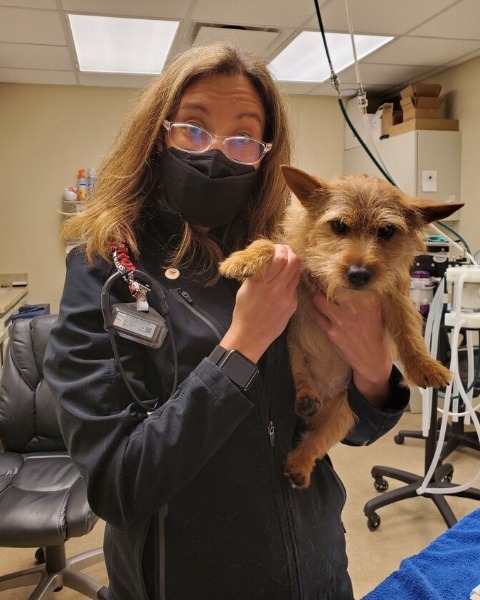Back
abs: Gamification to Improve Use of EPAs
Small Animal
abs: Gamification to Improve Use of EPAs
Innovations in Surgical Oncology
Saturday, October 15, 2022
3:00pm – 3:15pm
Location: Oregon Ballroom 202

Kendra A. Eginton, DVM, MPH
Resident in Small Animal Surgery
University of Minnesota Veterinary Medical Center
Abstract Presenter(s)
The concept of Entrustable Professional Activities (EPAs) was developed to guide competency based medical education (CBME). EPAs for veterinary clinical practice have been adapted at our institution into a web based application, but utilization has been poor. Gamification has the potential to strengthen engagement and change behaviors. The objective of this study was to evaluate whether gamified instructor-based interventions are beneficial in driving utilization of existing assessment tools.
A four month contest for the most EPAs logged within each rotation with monetary incentives and a physical leaderboard was implemented for our surgery service. In the four months prior to gamification, no evaluations had been submitted by the surgery service. 50 evaluations were logged during the contest, averaging 6.25 evaluations per 2 week block. Of the 50 evaluations, 29 (58%) were by residents, 11 (22%) by faculty, 9 by interns (18%) and 1 (2%) by technical staff. The response rate was 85.7% (6 of 7) for residents, 33.3% (2 of 6) for faculty, 33.3% (2 of 6) for interns, and 0.9% (1 of 11) for technical staff. As hypothesized, gamification resulted in increased logging of evaluations among all staff on the surgery service. Residents logged the largest number of evaluations. Clinicians that spent more time on clinics were more likely to submit evaluations. This demonstrates that novel strategies such as gamification can increase engagement among instructors. It also demonstrates that it is possible to increase utilization of already available educational tools through instructor-focused interventions.
A four month contest for the most EPAs logged within each rotation with monetary incentives and a physical leaderboard was implemented for our surgery service. In the four months prior to gamification, no evaluations had been submitted by the surgery service. 50 evaluations were logged during the contest, averaging 6.25 evaluations per 2 week block. Of the 50 evaluations, 29 (58%) were by residents, 11 (22%) by faculty, 9 by interns (18%) and 1 (2%) by technical staff. The response rate was 85.7% (6 of 7) for residents, 33.3% (2 of 6) for faculty, 33.3% (2 of 6) for interns, and 0.9% (1 of 11) for technical staff. As hypothesized, gamification resulted in increased logging of evaluations among all staff on the surgery service. Residents logged the largest number of evaluations. Clinicians that spent more time on clinics were more likely to submit evaluations. This demonstrates that novel strategies such as gamification can increase engagement among instructors. It also demonstrates that it is possible to increase utilization of already available educational tools through instructor-focused interventions.
